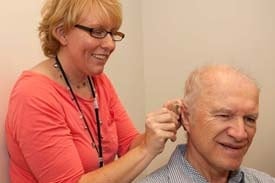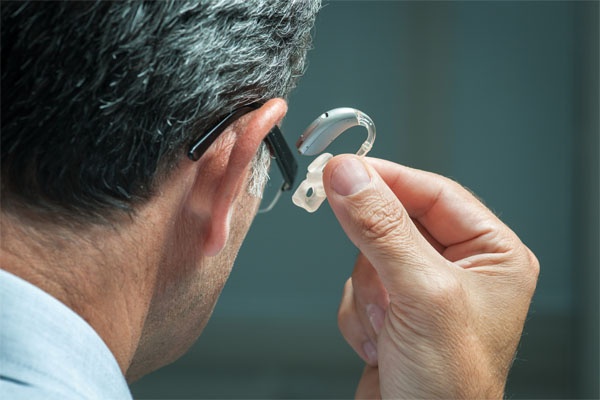Caring. Compassionate. Funny. Loves God. Can’t wait until Fall when Starbucks comes out with their signature Pumpkin Spice Latte with coconut milk. This person I’m describing is my sister, and she is deaf. She endured a terrible sickness at the age of 1 that took away her hearing, but not her spirit. My family and I wanted to know her – her thoughts, her needs, her dreams and goals. We needed to be able to communicate effectively with her. In order to achieve this, my parents decided that we would all learn American Sign Language (ASL). Many people assume learning a new language to communicate with a deaf person will be difficult – if not impossible. However, it is very possible to learn American Sign Language. Regardless of your age, if you are willing to learn, you will discover that your loved one holds all kinds of amazing ideas and plans for adventure. You and your loved one will thrive! Here are some tips to make learning American Sign Language more successful:
Why I Chose to Learn American Sign Language
Tags: Language, Communication, Support, Deaf, Hard of Hearing, American Sign Language, ASL, Learning
10 Reasons to Visit the Community Center for the Deaf and Hard of Hearing
There are countless reasons why the Community Center for the Deaf and Hard of Hearing (CCDHH) is a wonderful resource for Deaf individuals as well as those who want to learn more about Deaf culture.
Tags: Language, Communication, Teens, Support, Deaf, Hard of Hearing, Hearing Loss, American Sign Language, Interpreting, ASL Interpreter, ASL, Learning
Buying Hearing Aids: CHSC Audiologists vs. Online or Over the Counter
Cleveland Hearing & Speech Center audiologists are highly trained professionals. We have Doctoral and Master’s degrees in audiology and we have devoted our careers to helping you hear better. At CHSC, We believe that life is improved by successful communication. We are dedicated to helping people hear better so they can fully enjoy the people and activities that bring meaning to each day.
Tags: Hearing Aid, Audiology, Hearing Aids, Communication, Support, Hard of Hearing, Hearing Loss
Top 10 Tips for a Healthy Voice
- Try not to shout or scream.
- Decrease your volume – try not to repeatedly yell over others in noisy environments (e.g., restaurants, sporting events or other crowded locations).
- Try to eliminate background noise when talking.
- If you overuse your voice, take time for vocal rest by drinking lots of fluids and decreasing the amount of talking you do that day.
- When possible, use an amplification device or microphone when speaking in front of groups for long periods of time.
- Drink water to keep your vocal cords hydrated and healthy! If your vocal cords are dehydrated, they are more easily damaged and do not perform as well.
- Avoid clearing your throat or coughing repeatedly.
- Avoid excessive use of alcohol, caffeine, and tobacco.
- Warm up your voice before talking for a long period of time. Practice saying a sound such as “ah” going from low to high pitch and high to low pitch.
- Use good breath support. Try to breathe naturally and avoid holding your breath while speaking.
Tags: Speech, Communication, Support, Voice
Stuttering Therapy for Children
Stuttering can become a lifelong part of talking for some people. However, it does not have to interfere with your child's ability to make friends, participate in the classroom, make good grades, form lasting relationships or achieve career goals.
Deciding whether to take your child to speech therapy can be a difficult decision, however, many parents are concerned that taking a child to therapy will increase his or her awareness of the stuttering and thus have a negative effect or are unsure about the best time to start their child in therapy, especially when they get conflicting advice about whether to "wait and see" versus take action. Adding to the confusion, research suggests that as many as 70 percent of all children who start stuttering will outgrow it on their own with no speech therapy. But research also indicates that if a child has been stuttering longer than a year, the likelihood that he or she will outgrow it without any speech therapy is reduced.
Unfortunately, there are no firm guidelines about the best time to start therapy, although most speech-language pathologists will recommend starting therapy within six to 12 months after you have first noticed the stuttering. One thing we do know, though, is that all children can benefit from therapy, although the outcomes are different for different children.
As a result of speech therapy, some children are able to eliminate stuttering completely. Others learn strategies that help them stutter less, while yet other children learn to talk in a way that is easier and less tense, even though some stuttering is still noticeable. Most importantly, all children can learn to become more confident in their speaking skills, no matter how much stuttering they may still have.
Goals of stuttering therapy:
Tags: Speech, Communication, Support, Stuttering
Causes & Treatment of Infant Hearing Loss
Infant hearing loss affects approximately 2-3 out of 1,000 live births (NIDCD).
Tags: Audiology, Hearing, Hearing Loss Prevention, Support, Hearing Loss
Infant/Toddler Hearing Checklist
As of July 2004, all babies born in the state of Ohio receive a free hearing screening before they go home from the hospital. The Universal Newborn Hearing Screening (UNHS) legislation has been helpful in detecting hearing loss sooner and allowing families to begin helping their babies earlier. Typically, hearing is tested at birth, and, if it’s normal, is not tested again until approaching age 4. This usually takes place on a visit to the pediatrician. Hearing is screened again when the child enters school. Many schools then alternate between vision and hearing screenings during the school-age years.
Tags: Speech, Audiology, Communication, Hearing, Hearing Loss Prevention, Support
Hearing Loss: Be Your Own Self-Advocate
Self-advocacy encompasses learning how to speak up for yourself. It involves surrounding yourself with individuals that will support you in your journey, being knowledgeable regarding your rights, and being able to voice your rights to others. Advocating for yourself will not only lead to success in life, but it will help break down barriers and educate others about hearing loss. Living with a disability presents challenges, but fear not - with the appropriate support systems, strategies, and knowledge, you can learn to improve your quality of life.
Tags: Audiology, Communication, Hearing, Support, Hearing Loss
Does Insurance Pay for Hearing Aids?
Cleveland Hearing & Speech Center has had a long history of serving people with communication needs regardless of their ability to pay. Our Audiology Patient Assistance (APA) Program is available to those who require hearing aids and demonstrate financial need. In addition, we are a provider for Medicaid and Medicaid Managed Care plans including CareSource. These programs are targeted to those who have limited financial resources.
However, traditionally, there has been essentially no financial support available for people who are working to pay bills and support families but for whom the cost of hearing aids could be prohibitive. Because of the high cost, many people who fall under this category would typically avoid treating theirTags: Audiology, Hearing Aids, Hearing, Support
Development Success: Your Child's Team of Professionals
 As a parent, you will always want what is best for your child. At times, however, you may not be certain where to turn for help when a problem arises. Be assured - there are numerous professionals available to assist. Following is a helpful list you may refer to when determining your next steps.
As a parent, you will always want what is best for your child. At times, however, you may not be certain where to turn for help when a problem arises. Be assured - there are numerous professionals available to assist. Following is a helpful list you may refer to when determining your next steps.Tags: Support, Caregiving

















